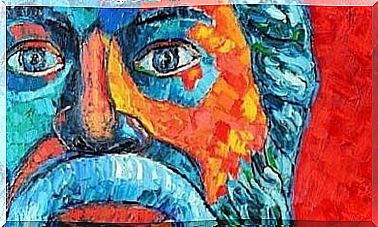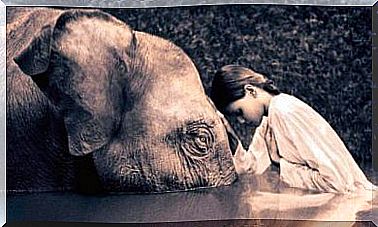Abulia: If There Is A Lack Of Desire And Motivation

Sometimes laziness can hurt us. The weight of the world is excessive and not only enthusiasm and motivation are lacking, but the ability to make decisions and act. It is a very different tiredness from what we might feel after a day of work. Apulia manifests itself without previous effort and, in fact, it is a condition that makes it hard to even think.
When a person faces such a condition, usually those around him tend to relieve him and give him simple advice, such as “take a few days off”, “go out and try to switch off, get some strength”. Yet, none of this is needed, they are useless patches on a psychological reality that does not understand what happiness is and that does not find relief even in a 10-hour sleep.
Sometimes apathy can be confused with other similar concepts, such as anhedonia or asthenia. Certainly the three conditions are very close to depression and, in some cases, can manifest themselves simultaneously, forming a truly exhausting triptych. Either way, each has unique characteristics.

Abulia, the lack of motivation becomes pathological
Abulia literally means “without will”. In itself it does not represent a mental disorder, it is a symptom, a dimension that can be hidden behind various clinical conditions, all characterized by high levels of suffering. From a medical point of view, it is conceived as an alteration of motivation, which most often originates from a neurological abnormality.
Certainly all of us can go through periods when we don’t feel motivated and we lose the desire, energy and motivation. However, we refer to isolated and transient cases. Some situations go far beyond that. Some people even stop communicating, manifest a silence that adds to a clear need for isolation from everything and everyone.
These are extreme cases, because abulia also falls within the framework of a spectrum, that is, there are those who manifest mild symptoms and those who instead fall into very painful and pathological states for the person and those around him.
What are the symptoms of abulia?
Apathy does not manifest itself exclusively with apathy and a lack of desire to carry out one’s duties. It is a much deeper, lasting and even interesting state:
- Lack of energy for daily activities.
- Tiredness, lack of motivation and initiative.
- Slow movements.
- Lack of ability to react to stimuli.
- Inability to make decisions, to react to the demands of the context to which they belong.
- Indecision.
- Slow language. The subject even struggles to listen to what is being said.
- Emotional stall: you don’t feel many emotions, but if you perceive it, it happens in unison causing fatigue.
- Some people end up adopting a form of dumbness.
It should be noted that special attention must be paid to children and the elderly. We may often think that this apathy and lack of motivation are associated with age (too young or too old). In reality, abulia also affects this segment of the population and it is important to know what triggers it.
Causes behind the lack of motivation
A few decades ago, asthma was thought to be a form of mental retardation. It was assumed that a person could present a sudden cognitive, emotional and motor delay that manifested itself with a sort of psychic involution. Fortunately, today we know this emotional state better.
- Abulia is usually a symptom of a form of major depression.
- It can be a symptom of a neurological disorder. An ischemia, stroke, or any other condition affecting the brain can result in a form of abulia.
- A study conducted at the University of Washington shows that an injury to the striatum or the thalamic nucleus can lead to abulia.
- The same is true in the presence of an alteration of the centers of motivation and movement, such as the frontal lobe of the brain, the basal ganglia or the anterior cingulate.
- On the other hand, it is also good to know that scopolamine (or burundanga) induces states of abulia, during which the person completely loses his will.

How do you heal from apathy?
Treatment for apathy will depend on the cause, i.e. the disorder or clinical condition from which this state originates. A patient who has suffered a brain injury as a result of an accident will not be treated as someone with a form of major depression.
In most cases it starts with a drug treatment. The study conducted by doctors Daniel A. Drubach, MD, Gabriel Zeilig, tells us about the effects of carbidopa and levodopa in treating the symptoms of the abulic patient. These drugs are effective because they optimize dopamine production and are good for the central nervous system.
At the same time, psychotherapy is highly recommended. In this case the goal will be to equip patients with the necessary tools to increase motivation, take care of their thoughts, regulate emotions and implement some useful behaviors to regain control of reality.
Interesting benefits of physical and sports therapies, as well as physiotherapy, have been observed. Moving even with simple motivating activities will increase the production of endorphins and favor a new contact from a physical point of view.
In conclusion, asthma is a symptom that should not be overlooked. If enthusiasm and willpower abandon a person dear to us to the point of lowering their quality of life, we must consult a professional.









